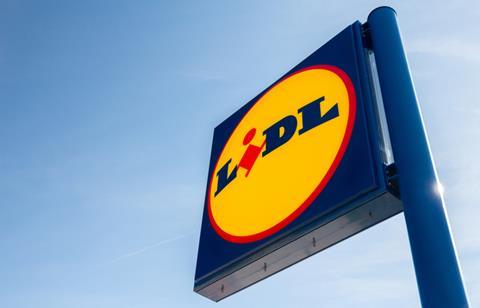
Image credit: Manuel Esteban / Shutterstock.comLidl Germany has committed to pay its employees a minimum entry-level wage of at least €14 (£11.93) gross per hour from 1 June.This will be an increase from the current Lidl minimum entry wage of €12.50 (£10.65) per hour, and will also exceed the German statutory minimum wage, which is currently €9.82 (£8.37) but is set to rise to €10.45 (£8.90) in July and then to €12 (£10.23) in October.
The Lidl minimum starting wage can be up to €18.26 (£15.56) gross per hour, plus Christmas and holiday bonuses, depending on an employee's classification in their respective regional collective agreement, and their existing professional experience. The business said that new employees can also expect permanent employment contracts, as well as promotion and development opportunities, along with salary hikes during their career.
The business also announced two months ago that as of August it would increase salaries for trainees and participants in the high school graduation program by €100 (£85) gross, with trainees receiving €1,100 (£937) per month in the first year of their apprenticeship, €1,200 in the second and €1,350 in the third.
Christian Hartnagel, chief executive officer at Lidl in Germany, said: “Our colleagues put in an above average commitment every day and it is a key concern for us that they are paid above average and fairly. It has always been important to us as an employer to pay our employees appropriately. We have lived up to this pioneering role since the introduction of the Lidl minimum entry wage 12 years ago.”
In 2010, Lidl became the first food retailer in Germany to introduce a €10 per hour minimum entry wage, which was above the current statutory minimum wage of €9.82 per hour at that time
As of March, Lidl increased its minimum pay for UK employees to £10.10 an hour, from £9.50, with rates of £10.85 to £11.30 for those in London. Some staff now earn up to £11.40 and £12.25, depending on the length of their service.
















